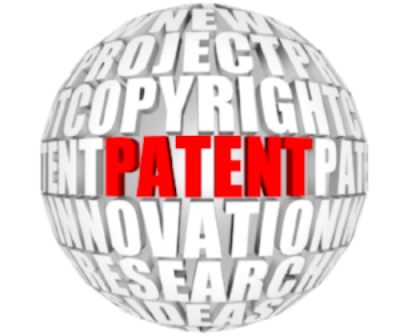
Nigeria. We have just developed a new product that will enable people watch
videos at nights with their eyes closed so they don’t strain their eyes. The
product is a wearable electronic lens. Because it is new, we want to apply for
patent in Nigeria. But the issue we have is the risk of having a third party
make the same product by reverse engineering or other means. Before investing
in patent application, we want to know what a grant of patent really gives us.
Is it adequate protection? If not, what should we do to get complete
protection?
people watch videos with their eyes closed! Amazing stuff!
Now to your question, you want to know what a grant of patent in Nigeria gives
DigiMid and if this will be adequate.
A patent gives DigiMid a monopoly over the invention for a period of 20 years.
This protection is generally adequate.
What kind of monopoly? you might ask.
The Patents and Designs Act governs patents in Nigeria. Under the Act, a patent
can either be a product or a process. An inventor who is granted a patent is
called a patentee. A patent gives the patentee a monopoly by conferring on the
patentee right to stop any other person from doing two major acts:-
product, the patentee has the right to stop any other person from making,
importing, selling, using, or even stocking the product for the purpose of
selling or using it;
process, the patentee has the right to stop any other person from doing two
things:
stocking for the purpose of selling or using a product that was obtained from
applying the process.
lens is a product. As a patentee, you will therefore enjoy the right to stop
any other person from doing any of the acts in paragraph one above.
Now to your second question, will patent be an adequate protection for your
invention?
Generally, yes. With the exclusive rights granted to a patentee, you have
meaningful protection for your invention.
But note that DigiMid’s rights as a patentee in respect of its
watch-videos-with-eyes-closed lens only applies to acts done for commercial or
industrial purposes. This means you can’t stop an unauthorized person from
making the invention if it is not for commercial or industrial, or both.
There are a number of reasons a patentee may not enjoy adequate protection.
One of these reasons is the way with which many inventors fail to protect their
inventions right from day one. How?
In DigiMedia’s case, the 3 points below show how:
well prepared for adequate protection, you may not have adequate protection. In your patent
application, your claim or claims determine the scope of protection you will
enjoy after patent is granted. This is why the scope of protection a patent
confers is determined by 2 things: (i) the terms of the claims; and (ii) the
description (with any plans and drawings). To prepare a patent application that
protects you adequately, consult a patent agent or attorney;
watch-videos-with-eyes-closed lens in Nigeria, DigiMid no longer has any rights
against unauthorized makers, importers, sellers, or users. This is so because
by selling the product before patenting it, you have exposed the invention to
the public. Under section 1(2) of the Patents and Designs Act, an invention is
new as far as it does not form part of the state of the art. State of the art
is everything concerning the field of knowledge to which your invention relates
which has been made available to the public before the date of filing your
patent application. So avoid selling your inventive product or process before
getting a patent. If you must make your invention available to the public for
some reasons, there is a safe procedure to do so under the Act; and
invention in a local or unofficial exhibition, getting adequate protection or
any protection at all is difficult. Making your invention available to the
public before patenting it affects protection (and even eligibility of the
invention for patent). Under the Act, there are 3 ways an invention is made
available to the public: (i) by description (oral or written); (ii) by use, or
(iii) by any other way. ‘Any other way’ is quite broad so it’s best that you
avoid any disclosure to the public in any way. The only public place that is
excluded is any official or officially recognized international exhibition. So
you don’t compromise your proprietary interest, avoid disclosing details of
your invention at both local and unofficial exhibitions.
What should DigiMid do to get complete protection?
First, be aware that even for real or movable property, there is no such thing
as complete protection. A patent being an intangible property, protection is
even less assured. This is why there are always risks of infringement. One way
of minimizing these risks is by ensuring that your patent application contains
specific claims, not general claims.
Second, since your invention is new—and excitingly so—consider getting patents
internationally as well. You may start by focusing on the countries you wish to
export your product to. For this purpose, there is a procedure that allows an
already registered patent in a country to be given priority when applying for
patent for the same product or process in another country. Nigeria’s Patents
and Designs Act recognizes this procedure.
Lastly, apart from patent, you may also consider trademarking the name of the
product you have invented. Should any person successfully get away with
unauthorized sale, import, or use of any invention as yours, you will be able
to use your distinctive mark to compete, making it easier for your customers to
distinguish your inventive product from others.
To explore all your options, we advise you contact an IP lawyer or law firm for
professional assistance and guidance.
